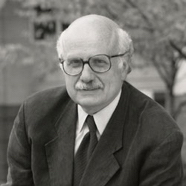A Dangerous 177-Year-Old Election Loophole Must Be Closed (Or The Next Presidential Coup May Succeed)
Fred Wertheimer’s Weekly Note | July 14, 2022
 The House Jan. 6th Committee hearings have documented that central to the attempted presidential coup by former President Donald Trump and his chief strategist John Eastman was their plan to exploit a loophole in the Presidential Election Day Act of 1845.
The House Jan. 6th Committee hearings have documented that central to the attempted presidential coup by former President Donald Trump and his chief strategist John Eastman was their plan to exploit a loophole in the Presidential Election Day Act of 1845.
The loophole would have allowed a state legislature to replace the Biden presidential electors chosen by the voters in the state with Trump electors chosen after the election by the legislature, if the legislature determined, on whatever grounds they chose, that the voters “failed to make a choice.”
The Trump/Eastman plot was revealed in a letter proposed by Jeffrey Clark, a mid-level Justice Department official and Trump ally, for top DOJ officials to sign and send to Republican leaders in key states, including Georgia.
In the end, the plot failed when the top Justice Department officials refused to sign the letter. While the Trump/Eastman scheme failed in 2020, the 1845 Act loophole remains a serious threat for future elections. Congress must close this loophole.
As former Judge J. Michael Luttig, a conservative Republican icon, testified before the Jan. 6th Committee last month: “If the former President or his anointed successor […] were to lose [the 2024] election, they would attempt to overturn that 2024 election in the same way that they attempted to overturn the 2020 election. But, succeed.”
Last summer, Democracy 21 joined with the late former Acting Solicitor General Walter Dellinger to develop a proposal to close the loophole in the 1845 Act, which is included as part of the Electoral Count Act of 1887 and codified today as 3 U.S.C. Section 2.
What needs to be done is straightforward – eliminate the “failure to make a choice” provision in the law and build in protections to ensure a rogue Governor or Secretary of State cannot sabotage the choice of the voters by submitting a slate of electors not chosen by the voters.
Presidential candidates should be given the right to bring an expedited challenge in federal court to electors that have been wrongly certified to represent the state in the Electoral College.
In January, around the same time that the Freedom to Vote: John R. Lewis Act was killed in the Senate, three Senators who played a key role in killing the legislation created a bipartisan group to develop reforms to the Electoral Count Act.
Skeptics believed at the time that the three Senators — Sens. Susan Collins (R-ME), Joe Manchin (D-WV), and Kirsten Sinema (D-AZ) – were looking for quick cover after playing key roles in killing the vitally needed legislation to override voter suppression and election sabotage laws enacted in a number of states in 2021.
According to Politico, Senators in the group now “say they’re getting close to a deal. Their goal is passing legislation on the Electoral Count Act by the end of the year, well in advance of the 2024 campaign.”
Two key tests must be met.
First, the proposed legislation must effectively solve the problems in the current Electoral Count Act that were exposed by the Trump effort to steal the 2020 presidential election.
Second, Senator Collins and her Republican colleagues in the bipartisan group must be able to produce at least 10 Republican Senators who will support the legislation in order to overcome any filibuster. Reform supporters also must keep a close eye on Republican Leader Mitch McConnell (R-KY). If McConnell doesn’t ultimately support the legislation, he can be expected to kill it by filibuster.
Absent the 10 Republican Senators being produced that are necessary to overcome a filibuster, the legislation will become just an exercise and not a solution to closing an extremely dangerous loophole that could wreak havoc in 2024.
________________________
Fred’s Weekly Note appears each Thursday in Wertheimer’s Political Report, a Democracy 21 newsletter. Read this week’s newsletter here. And, subscribe for free here and receive your copy each week via email.